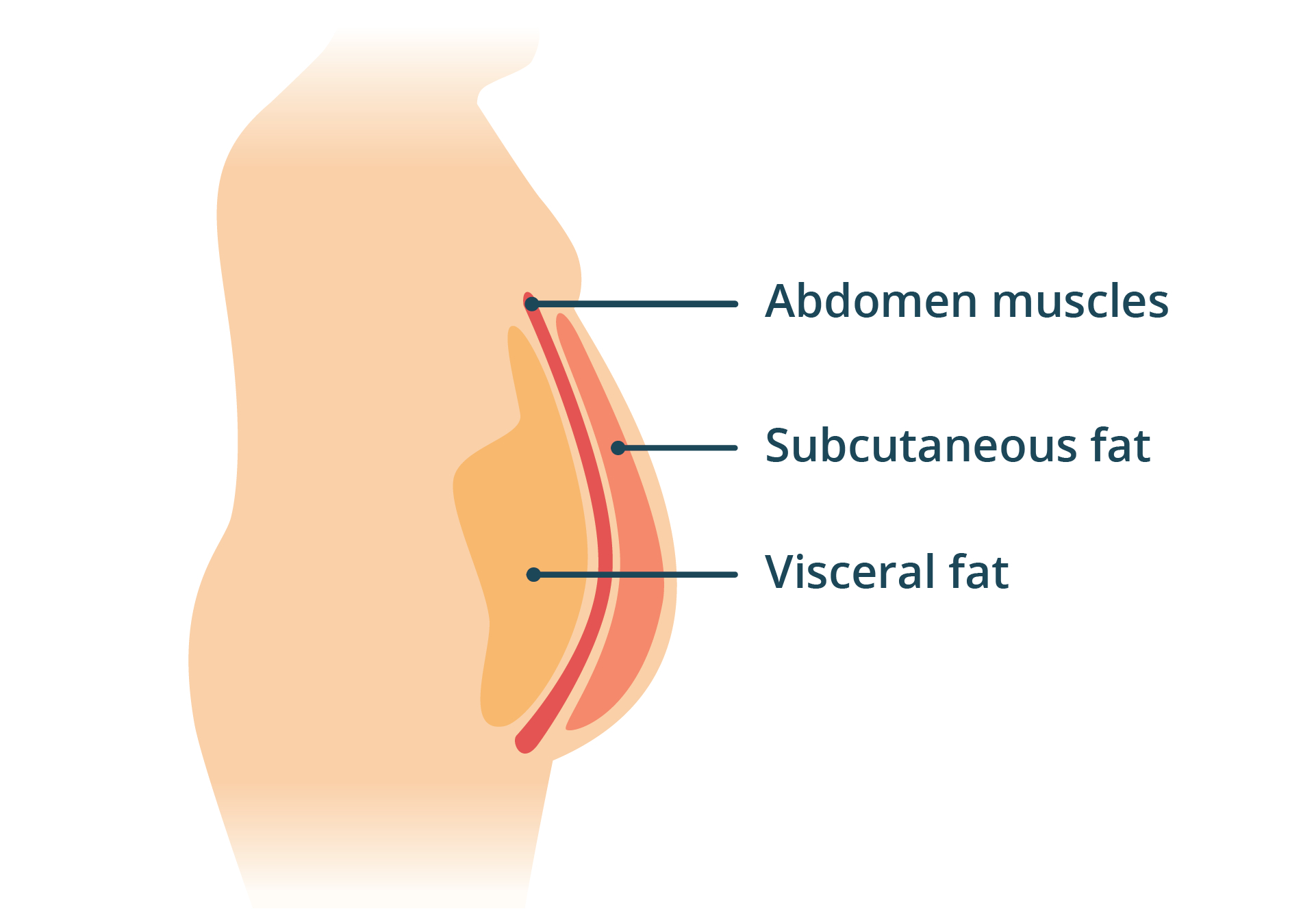What is visceral body fat?
Visceral body fat, also known as ‘toxic’ fat, is fat stored deep inside your body.
Most fat is stored underneath the skin and is known as subcutaneous fat. This is the fat that is visible and that you can feel. The rest of the fat in the body is stored around your internal organs, including your heart, liver and intestines. This is visceral fat.
Visceral fat makes chemicals and hormones that can be toxic to the body.
Visceral fat produces more of these toxic substances than subcutaneous fat, so it can be more harmful to your health. Because of this, visceral fat carries a range of health risks for everyone.
Visceral fat is more common in males than in females.

What causes visceral fat?
Visceral fat is stored when you eat too many calories and don’t do enough physical activity.
Some people at a greater risk for storing extra energy as visceral fat, including:
- males
- females who have reached menopause
- people who had a low birth weight
- people with a genetic predisposition
- people who drink too much alcohol
What are the health risks associated with visceral fat?
Having visceral fat in the belly is a sign of metabolic syndrome, a collection of disorders that include high blood pressure, obesity, high cholesterol and insulin resistance. Together, these increase the risk of stroke, heart disease and type 2 diabetes.
Having too much visceral fat in the belly is also linked to a higher risk of:
- dementia
- cancer
- asthma
- liver disease, gall bladder disease and gout
- fertility problems
- lower back pain
- osteoarthritis
How do I know if I have visceral fat?
The best way to tell if you have visceral fat is to measure your waist. Your waist circumference is a good indicator of how much fat is deep inside your belly, around your organs.
Your risk of chronic disease is higher if your waist circumference is greater than:
- 80cm, for females
- 94cm, for males
These measurements don’t apply to children or pregnant females. If you think your waist measurement may be too large, talk to your doctor.
How can I reduce visceral fat?
The best way to reduce visceral fat is through losing weight (if you are above a healthy weight range) and maintaining a healthy diet. Regular exercise is especially effective in reducing visceral fat and preventing it from coming back.
Even though you cannot change your genetics, hormones or your age, you can reduce your risk of disease by:
- being physically active for at least 30 minutes most days
- eating a healthy diet
- not smoking
- avoiding or reducing your consumption of sugary drinks
- getting enough sleep


